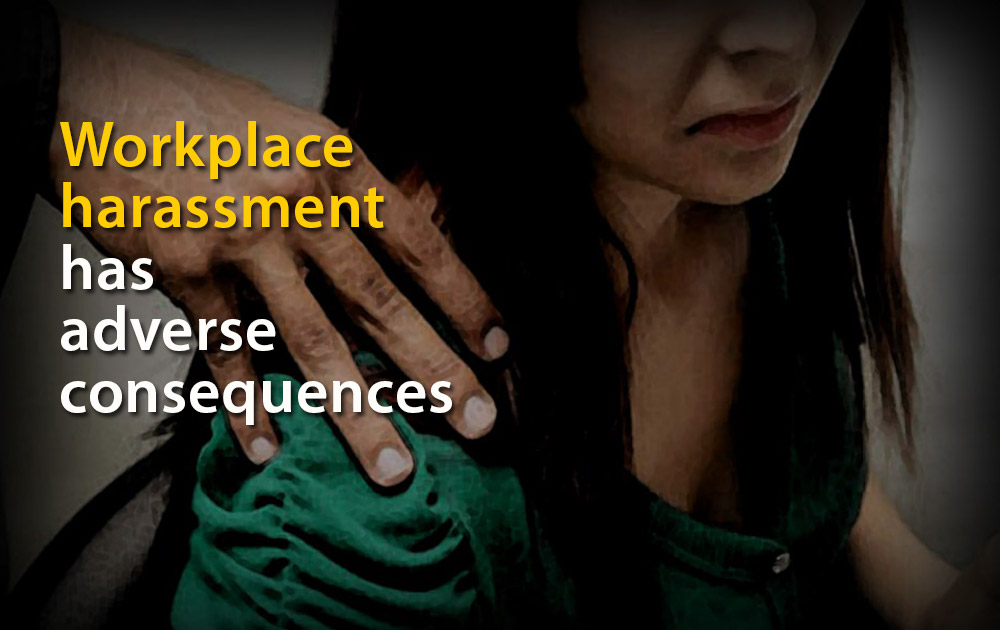Employees who experience sexual harassment by supervisors, colleagues or subordinates in the workplace may develop more severe symptoms of depression than employees who experience harassment from clients or customers. The research which involved 7603 employees from across 1041 organizations in Denmark was published in the open access journal BMC Public Health.
Also Read: Exercise in big parks can reduce depression

Dr. Ida Elisabeth Huitfeldt Madsen, National Research Centre for the Working Environment, Denmark, the corresponding author said: “We were surprised to see the differences between the effects of harassment by clients or customers compared to harassment by other employees. This is not something that has been shown before. Previous research showed an increased risk of long-term sickness absence for employees exposed to sexual harassment by a colleague, supervisor or subordinate but an increased risk was not always found in association with sexual harassment by clients or customers.”
Dr. Madsen added: “Our findings suggest that sexual harassment from clients or customers have adverse consequences and should not be normalized or ignored. In this study, we found that sexual harassment from clients or customers, which is more prevalent than harassment from other employees, is associated with an increased level of depressive symptoms. This is important as some workplaces, for example in person-related work like care work or social work, may have an attitude that dealing with sexual harassment by clients or customers is ‘part of the job’.”
The researchers found that compared to employees not exposed to sexual harassment, employees harassed by clients or customers scored 2.05 points higher on the Major Depression Inventory (MDI) – a self-report mood questionnaire that generates a diagnosis of depression together with an estimate of symptom severity. Scores on the MDI range from 20 for minor depression to 30 or more for major depression. Employees harassed by a colleague, supervisor or subordinate scored 2.45 points higher compared to employees who had experienced sexual harassment by clients or customers.
When looking at clinical depression only, the researchers found no increased risk among those harassed by clients or customers compared to those not exposed to harassment, whereas those harassed by colleagues, supervisors or subordinates had a significantly higher risk of clinical depression.
Out of the 7603 employees who participated in this study, 2.4% (180) were exposed to sexual harassment by clients or customers, while 1.0% (79) was exposed to harassment by colleagues. Women were more likely to be exposed than men, with 169 out of 4116 women reporting sexual harassment by clients or customers compared to 11 out of 3487 men, and 48 women reporting sexual harassment by colleagues compared to 31 men. Participants employed in care workers were more often exposed to sexual harassment by clients or customers – 152 out of 2191 (6.9%) – than participants employed in other occupational groups such as education, service or industrial work.
The authors note that as the number of exposed individuals in this study was relatively low. This increases the uncertainty of the reported estimates, especially for men. The observed associations may thus largely be reflective of women’s experiences. The cross-sectional observational design of this study does not allow for conclusions about cause and effect. Also, the use of self-reported data that relied on participant recall may have led to sexual harassment being under- or over-reported.
Despite these limitations, the authors suggest that it is important to investigate sexual harassment from clients or customers and sexual harassment by colleagues, supervisors or subordinates as distinct types of harassment and to identify methods to prevent sexual harassment and the development of depressive symptoms.
Want to write for InnoHEALTH? send us your article at magazine@innovatiocuris.com

